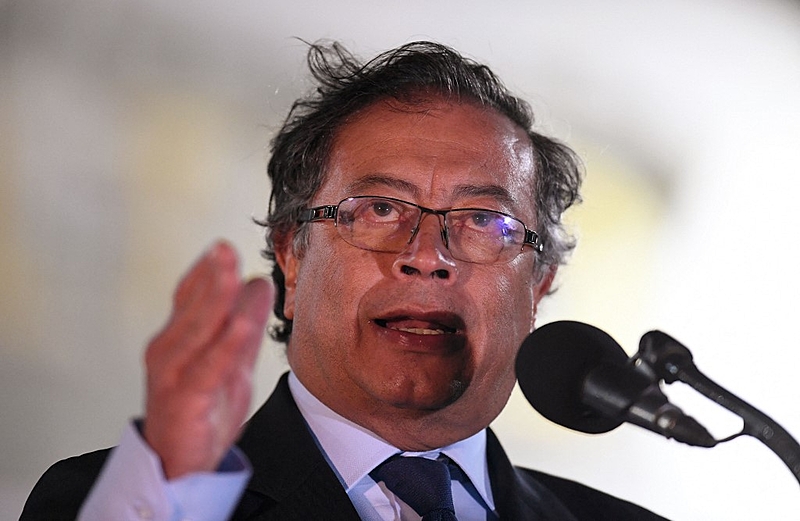By Sabrina Martín
(Opinion) The dollar price in Colombia has not stopped rising to the point where thousands of citizens are beginning to despair.
Since Gustavo Petro became president, more Colombians are taking a dim view of the peso, the country’s official currency.
Every time a leftist president takes office, especially in Latin America, the economy destabilizes to such an extent that -rightly so- some people start thinking about emigrating and others start thinking about buying dollars to save.
Since Petro arrived at the Casa de Nariño, the dollar went from 4,300 pesos to above 4,800 pesos.

This resulted in the Colombian currency being the most devalued in Latin America since July, only surpassed by Argentina, another country led by the left.
Currency fluctuation is usually caused by political, economic, and social instability in a country, external situations, or statements that could alter markets and generate uncertainty.
Recently, Colombia’s Finance Minister, José Antonio Ocampo, said that the country would “have a responsible macroeconomic policy”, giving the impression that he could soon announce measures to control currency fluctuation.
For his part, Gustavo Petro blamed the United States by stating that “it is practically ruining all economies”.
This is how statements of this type have managed to influence the markets, where people -to secure their money- prefer to buy strong currencies such as the dollar to avoid the devaluation of their savings.
And the fact is that every time the dollar soars in Colombia, there is a direct relationship with actions or statements made by Petro and his entourage.
For example, last Oct. 6 was the fourth highest rise of the dollar, just one day after Petro criticized on Twitter the decision of the Central Bank to raise interest rates to contain inflation.
According to Petro, raising the Bank’s interest rates was aimed at avoiding the outflow of investments. He even proposed adding a tax to them, a situation that made investors nervous and drove the dollar up.
Something similar happened last Oct. 14 when the dollar reached 4,700 pesos.
On that occasion, the Minister of Labor, Gloria Inés Ramírez, proposed freezing the prices of the basic food basket in the framework of the discussion of the minimum wage increase for 2023.
The measure, similar to the one proposed by Hugo Chávez in Venezuela, served as a catapult for the dollar price.
In economics, saying that you will control prices is like pressing the alarm button and opening the door for an emergency exit.
PANIC ABOUT GUSTAVO PETRO
“Markets are very suspicious of Petro. Initially, it was merely panic; a lot of people bought dollars due to the panic that his election produced in them”, explained to La Gaceta economist Juan Felipe Vélez, a researcher at the Center for Systemic Economics of Medellín (ECSIM).
For the specialist, Petro “has been very irresponsible in his speeches,” putting relations with the United States, its leading trading partner, at risk.
“Petro has dedicated himself to blaming the United States for the devaluation. Which translates into throwing more gasoline on the fire because the United States is our main trading partner,” he said.
Vélez explained that in Colombia, the peso continues to devalue sharply and to levels of the Argentine peso because Petro, his Minister of Mines, and his Minister of Labor have made comments that generate an alarm in the markets.
“The issue of banning new exploration and exploitation contracts causes a lot of uncertainty in the country.”
Every time Petro or his entourage make comments such as upcoming exchange control, food price controls, or any measure against the free market, they are turning on the alarm button, scaring away investors and driving the devaluation of the local currency,” added Vélez.
“These are measures that, in several economies, including Venezuela’s, have failed. Because instead of benefiting the country, what they do is to destroy any possibility of progress, impoverishing the population”, he said.
This is how the Colombian peso has devaluated more than 18% against the dollar since Petro won the second round; it can be said then that only in 4 months Colombians are 20% poorer.
With information from Gaceta

